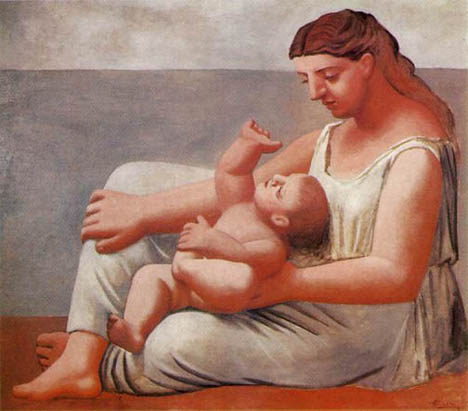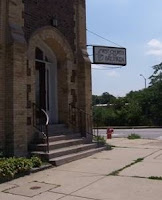"as the refuse of the world"
I'm thinking about focusing on the parable of the sheep and goats for worship a week from Sunday, which will probably be my last time leading worship. I've written about that parable before, back when we were at the Catholic Worker (starting here). Those thoughts will most likely provide the central points, especially this part:
Those who Jesus identifies himself with, those he calls "my brethren" in the parable, are people who are hungry, strangers, prisoners. That should not be surprising, since that is what Jesus told his followers to expect: "If they persecuted me, they will persecute you" (Jn 15.20). And Paul described the apostles' experience of this:To the present hour we hunger and thirst, we are ill-clad and buffeted and homeless... We have become, and are now, as the refuse of the world, the offscouring of all things. (1 Cor 4.11,13)So it makes sense that Jesus would say "as you did it not to one of the least of these, you did it not to me," when "these" refers to those who are suffering as Jesus' followers, those walking closely in his footsteps.
Yet when we think of those who are hungry, strangers, prisoners, we usually do not think of Christians. We think of Christians as responsible, upstanding, respected citizens. We think of Christians as those in charge of soup kitchens and other relief organizations. We don't think of Christians as those in need of help. But Jesus' own life, and his teaching, and his disciples' experience, all show the Christian life as an experience of persecution, vulnerability, need. Sheep amidst wolves.
In the final judgment scene of the parable, however, "the least of these my brethren" are no longer under attack from the world but the world ("the nations", ethnos) is being judged according to the way they treated Jesus' persecuted brethren. They may not have encountered Jesus in person, but they encountered him in his followers. For some this is a dire revelation. But for others, this is very good news.
Which brings up the comforting aspect of this parable for me. There are some who, though they are not quite aware of what Jesus is doing in the world (or what he looks like in the world) yet they come into relation to Jesus through their compassion for his followers. And this is a great good for them: "he who receives a righteous man because he is a righteous man shall receive a righteous man's reward."
This makes me hopeful, because though I don't find too many people (even among "Christians") who are willing to follow Jesus' example very closely themselves (perhaps because they see that it leads to being one of "the least"), there are many more who are at least willing to show kindness and help someone who is trying to follow Jesus closely. And I have to feel good about that. Because though it's disappointing that they cannot see and more fully experience life walking close with Jesus now, I can imagine them one day hearing these words:"Come, O blessed of my Father, inherit the kingdom prepared for you from the foundation of the world; for I was hungry and you gave me food, I was thirsty and you gave me drink, I was a stranger and you welcomed me, I was naked and you clothed me, I was sick and you visited me, I was in prison and you came to me."






 subscribe
subscribe